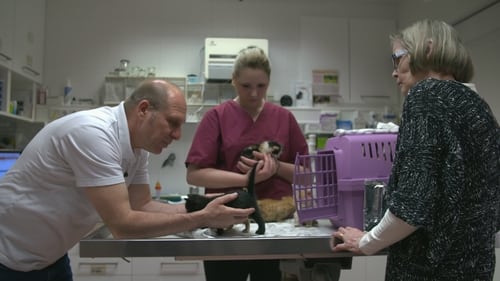Dead Birds (1963)
Genre : Documentary
Runtime : 1H 24M
Director : Robert Gardner
Synopsis
The film's title is borrowed from a Dani fable that Gardner recounts in voice-over. The Dani people, whom Gardner identifies mysteriously as "a mountain people," believe that there was once a great race between a bird and a snake, which was to determine the lives of human beings. Should men shed their skins and live forever like snakes, or die like birds? The bird won the race, dictating that man must die. The film's plot revolves around two characters, Weyak and Pua. Weyak is a warrior who guards the frontier between the land of his tribe and that of the neighboring tribe. Pua is a young boy whom Gardner depicts as weak and inept.
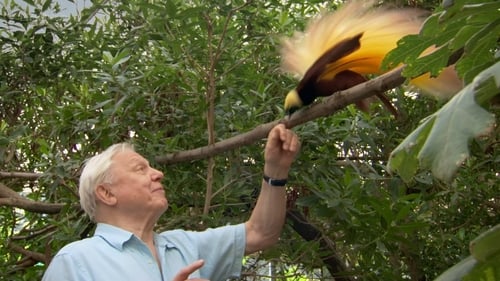
David Attenborough tells the remarkable story of how these " birds of paradise " have captivated explorers , naturalists, artists, filmmakers and even royalty.

After squandering his grant money, despondent and recently widowed anthropologist James Krippendorf must produce hard evidence of the existence of a heretofore undiscovered New Guinea tribe. Grass skirts, makeup, and staged rituals transform his three troubled children into the Shelmikedmu, a primitive culture whose habits enthrall scholars. But when a spiteful rival threatens to blow the whistle on Krippendorf's ruse, he gets into the act as well.
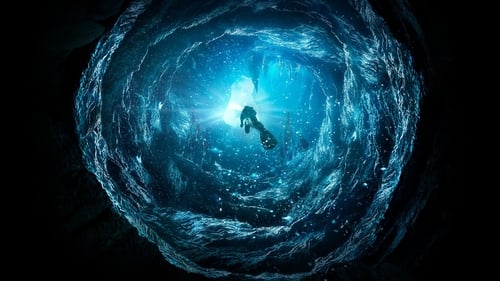
Master diver Frank McGuire (Richard Roxburgh) has explored the South Pacific's Esa-ala Caves for months. But when his exit is cut off in a flash flood, Frank's team—including 17-year-old son Josh (Rhys Wakefield) and financier Carl Hurley (Ioan Gruffudd)—are forced to radically alter plans. With dwindling supplies, the crew must navigate an underwater labyrinth to make it out. Soon, they are confronted with the unavoidable question: Can they survive, or will they be trapped forever?
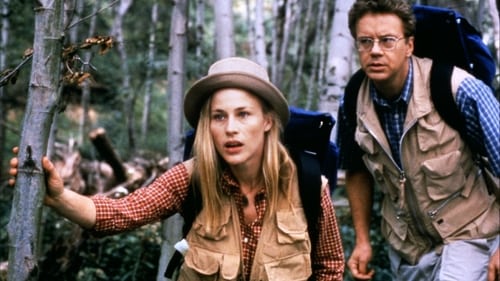
A philosophical burlesque, Human Nature follows the ups and downs of an obsessive scientist, a female naturalist, and the man they discover, born and raised in the wild. As scientist Nathan trains the wild man, Puff, in the ways of the world - starting with table manners - Nathan's lover Lila fights to preserve the man's simian past, which represents a freedom enviable to most.
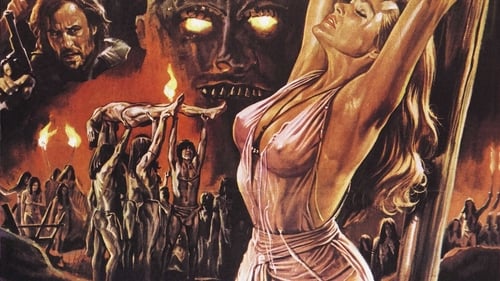
A girl and her brother fly to New Guinea to look for a lost expedition, led by her husband, which has vanished in the great jungle.

Living in the depths of the New Guinea rainforest are the spectacular birds of paradise - creatures so beautiful that the first Europeans believed they must have fallen from heaven. Filming their bizarre courtship displays is the Holy Grail of wildlife film makers: some perform like iridescent acrobats, others make hypnotic pulsing sounds as they quiver and vibrate.
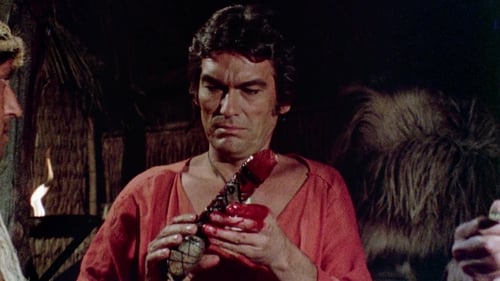
A woman's search for her missing sister leads her to the jungles of New Guinea, where she and an expatriate guide encounter a cult leader and flesh-hungry natives.
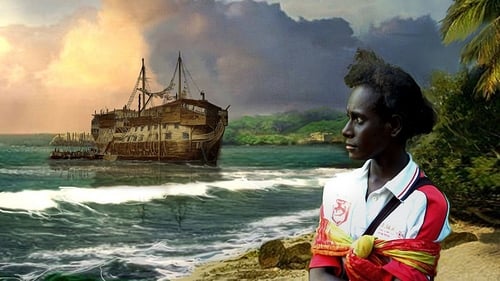
As a war rages on in the province of Bougainville in Papua New Guinea, a young girl becomes transfixed by the Charles Dickens novel Great Expectations, which is being read at school by the only white man in the village. In 1991, a war over a copper mine in the South Pacific tore the island of Bougainville apart. The reclusive “Popeye” (Hugh Laurie) offers the children in fourteen-year-old Matilda’s tiny village an escape with Charles Dickens' Great Expectations. But on an island at war, fiction can have dangerous consequences.
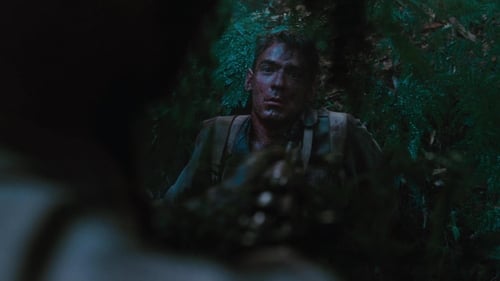
A bitter battle is fought between Australian and Japanese soldiers along the Kokoda trail in New Guinea during World War II.
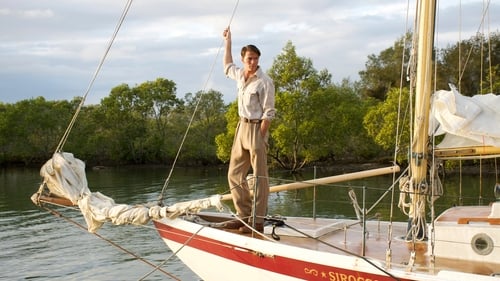
A mostly true account of future Hollywood star Errol Flynn's sea adventures in the early thirties, sailing from Australia to Papua in search of gold, along with his best friend Rex, a former Canadian smuggler; Dook, a handy English gentleman; and Charlie, a grumpy old sailor.
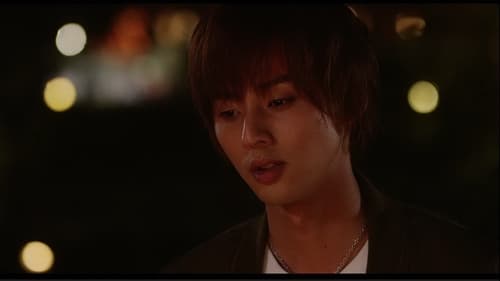
Living in the depths of the New Guinean Rainforest are birds of unimaginable color and beauty. When Europeans first saw the plumes of these fabulous creatures in the sixteenth century they believed they must be from heaven and called them Birds of Paradise. The people of New Guinea make even greater claims. They say the birds possess supernatural powers and magic. But to find these birds in New Guinea is one of the toughest assignments and to witness their extraordinary mating displays is even tougher. David Attenborough introduces a young team of New Guinean scientists on a grueling expedition to find and film these Birds of Paradise; the holy grail of wildlife filmmakers.
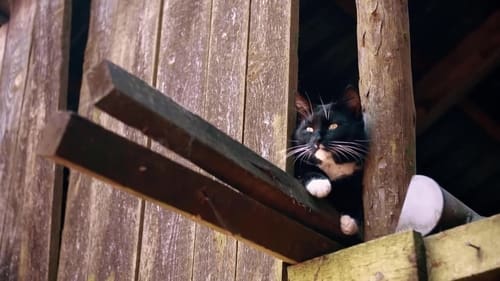

National Geographic joins author and explorer Piers Gibbon as he investigates one of mankind's ultimate taboos: cannibalism.
Gibbon treks into the rain forest of Papua New Guinea to find tribe members who ate human flesh. And, meets the members of the once-feared Biami tribe to witness their ritual techniques.

This is a film about a Naval Air Corps Director who hates the war. Director Honda uses this film to ask the question "What is war?", showing the human bonds between Japan and America, Japanese military tactics which had little regard for life, and the attitude of Japanese military personnel who treated their actions as if they were just doing a job. This film contains few battle scenes, concentrating instead on the love stories of young officers and female members of the community in this lonely air base.

Aliko & Ambai is a feature film about two young women facing the challenges of growing up in the beautiful Eastern Highlands of Papua New Guinea. The challenges are significant: tribal conflict, poverty, bullying, domestic violence,and forced marriage. Aliko struggles to complete her education and Ambai searches to escape her abusive home and reunite with her biological father. They navigate the many obstacles in their lives and endeavour to build brighter futures for themselves, supported by the strength of friendship.

Joe Leahy is the half-caste son of one of the first explorers of the Papua New Guinean interior. The documentary explores his relationship with the tribes that work his coffee plantation and explores what happens when the coffee market situation becomes more difficult.

Pinky Scariano, Allan Ross, and Frankie Davis all join the Army Air Forces with hopes of becoming pilots. In training, they meet and become pals with Bobby Grills and Irving Miller, and the five struggle through the rigid training and grueling tests involved in becoming pilots. Not all of them succeed, and tragedy awaits for some.

In his now well-known role of narrator of wildlife expeditions, Attenborough accompanies a government-sponsored trek into the central New Guinea highlands to make contact with a group of natives never before seen by Europeans.
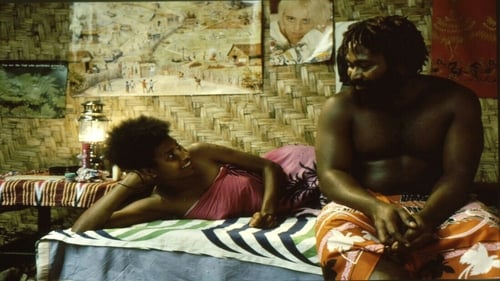
A man encounters colorful characters while driving a taxi in Papua New Guinea.

Hans has killed the dog of Firmin, a shepherd. Wild with rage, Firmin kidnaps Elsi, Hans' fiancée and locks her up at his home. Hans, a peddler, vows to find the missing girl. This is what he does and he manages, with the help of Mânu, the village idiot, to give Elsi a letter. On seeing her, the changeling falls in love at first sight with the young woman. Elsi soon realizes that Mânu can become her instrument of vengeance.

A soundless film starts in a studio: an artist sits, a nude stands; a page burns, paper cutouts appear, images are distorted. The artist removes his eye; it falls from his hand, seeing images spin as it rolls. A man falls, objects in the studio falls on him, he's not the artist. A woman gets help from a man in a lab coat; he and the man on the floor fight over a shotgun. Outside, in the city, people and cars move backwards. On the street, those from the studio chase a woman who's stolen leeks. In the backward cityscape, they move forward. They run toward a seaside amusement park. The artist follows, his head in a bird cage. He ends up with the woman who went for help; or does he?

A farmer accidentally creates a self-procreating iron Pegasus.

The history and art of ikebana, a centuries old Japanese art of flower arrangement and a look inside the Sogetsu School of Ikebana, where the director's father Sofu Teshigahara worked as the grand master of the school.

In Russian, "Svyato" means "happy". But it is also a nickname for Svyatoslav, the son of director Kossakovsky, who for two years covered mirrors from Svyato. For the first time in his life, Svyato is going to watch himself on a mirror.

A lonely guy, living an uneventful life in Paris, takes care of his mother. One day, a girl with a more exciting life moves in his apartment building.

"The strangeness of this film is laced with carefully moulded apocalypses as the filmmaker explores a vision of life beyond death – the Elysian fields of Homer, Dante’s Purgatorio, de Chirico’s stitched plain. A moving single picture. Evolving the structure or script for the film involved a process of controlled hallucination, whereby I sat quietly without moving, looking at the background until the pieces began to move without my inventing things for them to do. I found that, given the chance, they really did have important business to attend to, and my job was to furnish them with the power of motion. I never deviated from this plan." —Canyon Cinema

This is October 1955. The place is a village in Loire-Atlantique, La Chapelle-Basse-Mer, where an old clog-maker works and lives with his wife and their adopted son. The clog-maker's meticulous craft is described with love and close attention to detail. On the other hand, forthcoming death pervades the quiet everyday life of the elderly couple.

The updated autobiography of Britain’s most controversial film director, the maker of Women in Love, The Devils, The Music Lovers, Tommy and The Rainbow, is as unconventional and brilliant as his best films. Moving with astonishing assurance through time and space, Russell recreates his life in a series of interconnected episodes – his thirties childhood in Southampton, his first sexual experience (watching Disney’s Pinocchio), his schooldays at the Nautical College, Pangbourne, early careers in the Merchant Marine and the Royal Air Force, dancing days at the Shepherds Bush Ballet Club and of course his career as a film-maker, beginning with an extraordinary interview with Huw Weldon for a job on Monitor. Full of marvellously funny anecdotes and fascinating insights into the realities of the film director's life, A British Picture is a remarkable autobiography.
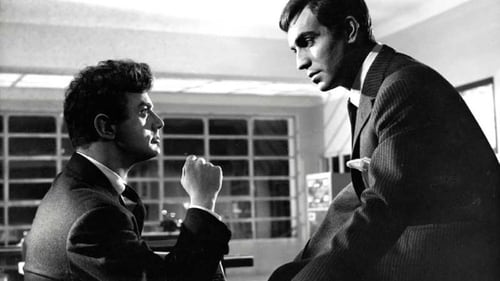
Alfredo is a cheerful party animal, son of a wealthy man. Alfredo's brother, a young very focused and mature boy, and their father try unsuccessfully to change the profligate lifestyle of Alfredo to remedy the dissolute life of the latter, which, by all indications, is clearly gay.

Two kinds of starfish, the brittle and the feather. The brittle star moves its arms alone, without the aid of suckers. Underneath is a single opening. Stalks move food close to the mouth and move waste away. We see vents, used in reproduction and breathing. We watch the hatched young expelled into the water. The camera shows us brittle stars' intricate patters. We observe feather stars in clusters, like ferns. One turns over slowly; arms have branches with stalks for breathing and gathering microscopic food. Reproductive organs are inside branches. We see eggs develop at 1,400 nature's speed. Larvae emerge, 0.1 mm long. They grow. A feather star takes a walk.
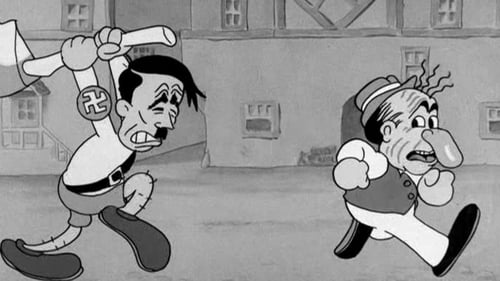
Bosko runs a movie theater that shows a wacky newsreel with Jack Dumpsey, a slapstick short from Haurel and Lardy, and a turn-of-the-century melodrama starring Honey.

Grierson set out to make "propaganda," and this film--with it's voice-over proclaiming the great value of the British industrial worker, without a hint of ambiguity or doubt--fits that category well. The authoritatarian narrator feels out-of-date and unsophisticated, but the footage is well shot and interesting, and the transparency of the propaganda aspect is almost a reflief at a time when so many films have hidden agendas.

A man plays fetch with his dog, only to have both him and his dog mired in a series of optical illusions.

Award-Winning filmmaker Paul Leduc (Frida, Naturaleza Viva, Reed: Insurgent Mexico, Barroco) directed this gritty musical drama about life in the ghettos of Mexico City during the 1980s. With a soundtrack of Mexican rock music, the camera takes the viewer through the streets, to rock concerts, and to the bars and clubs, where he exposes the hunger, repression, unhealthy conditions and violence in the marginal communities of Mexico's capital city.
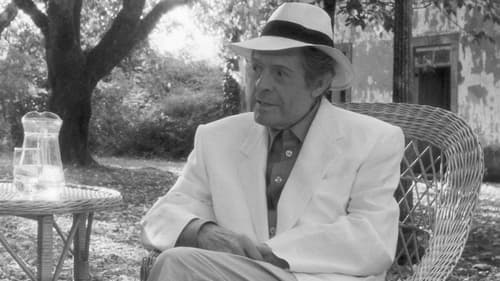
In 1996, Marcello Mastroianni talks about life as an actor. It's an anecdotal and philosophical memoir, moving from topic to topic, fully conscious of a man "of a certain age" looking back. He tells stories about Fellini and De Sica's direction, of using irony in performances, of constantly working (an actor tries to find himself in characters). He's diffident about prizes, celebrates Rome and Paris, salutes Naples and its people. He answers the question, why make bad films; recalls his father and grandfather, carpenters, his mother, deaf in her old age, and his brother, a film editor; he's modest about his looks. In repose, time's swift passage holds Mastroianni inward gaze.
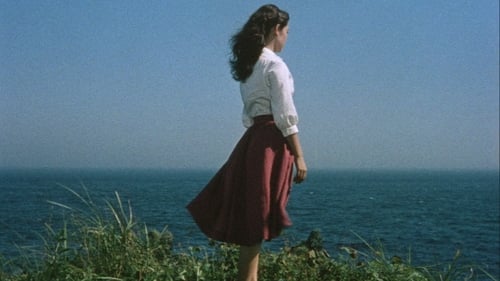
Yuko is sent to the coastal regions to be raised away from the rest of her sophisticated family where she finds out from her ill grandmother that she is not who she thought she was.

An employee of a photo archive describes some of the most unusual requests for photographs he has had to deal with (such as a photograph of Jesus), as the impossible images are brought to life through animation.
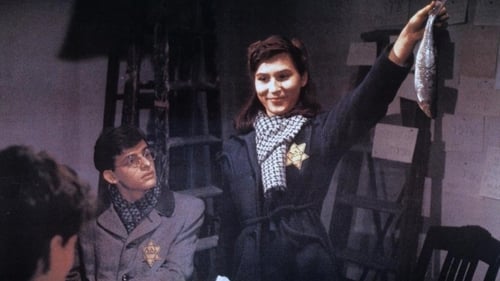
Although members of the Hitler Youth chant anti-Semitic paroles in front of his house during the Purim festival, Rabbi Singer is still profoundly convinced that Germany will stay a safe country for him, his family, and his fellow believers. But several years later, his son David is banned from going to school because he is a Jew. Shortly after, Rabbi Singer and his wife are deported. Now, young David also fears for his life. In constant fear of being detected, he tries to find a way to leave Germany.

Portrayal of a talented, influencial and troubled artist: a filmmaker who fought his own demons and seemed to live his own legend like no other director. Against all odds Sam Peckinpah was able to create a very personal body of work in the studio system of Hollywood and with his powerful directing and editing style changed the way of filmmaking forever. Legendary for his use of slow-motion violence, various scandals and his ongoing problems with sudios and producers, the story of Peckinpah is filled with tragedy, humor, success and defeat.



















